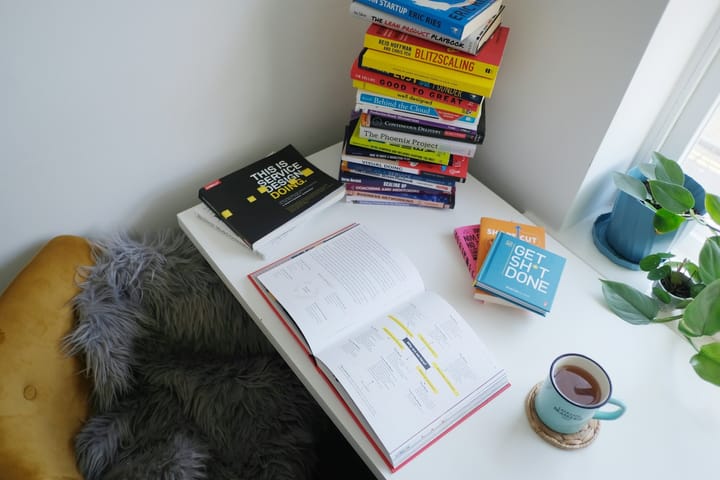How to Build Discipline and Consistency Without Burning Out
Discover practical strategies to build discipline and consistency without draining your energy. Learn how to stay committed, focused, and balanced in your personal and professional life.

If there’s one question that keeps coming back to me, whether from peers or from my younger self, it’s this: how do you stay consistent?
We’ve all seen it. That Monday motivation surge where we start a new routine, a new habit, or even a new project with full force. But by Thursday, it’s all gone. The momentum fizzles out. And by next week, we’ve convinced ourselves we’ll "start fresh from Monday." Again.
The truth is, discipline and consistency aren’t about iron willpower. They’re about systems. And if you build the right systems, you no longer need to wrestle with yourself every morning.
Let’s break down how to build discipline and consistency, in a way that works even when life gets messy.
Discipline Starts with Small Decisions, Not Grand Declarations
Most people think discipline is about waking up at 5 AM or going for a 10K run. But the foundation of discipline is far less dramatic. It’s built on small, boring decisions repeated daily. It’s choosing to write a paragraph instead of scrolling. It’s choosing to walk for 10 minutes instead of skipping it entirely.
Big declarations create pressure. Small decisions build identity.
When I wanted to become a more consistent writer, I didn’t start by saying, "I’ll write 1,000 words a day." I started by opening my journal every night after dinner. That was it. No word count target. No pressure. Just show up.
And over time, the action became automatic. That’s the magic of micro-commitments. You lower the entry barrier so much that it’s easier to do the task than to skip it.
Start with a ridiculously easy version of the habit. Not because you’re lazy. But because you’re building a reputation with yourself. And once that reputation is strong, discipline follows.
Consistency Isn’t About Motivation. It’s About Design.
The most consistent people aren’t more motivated than the rest. They’ve just designed their life to make consistency easier.
Look around your environment. Is it helping or hurting your habits? If you want to read more, is your book always visible? If you want to workout, are your shoes within reach?
Motivation is a mood. Design is a choice.
I used to rely on motivation to work out. But then I started keeping my dumbbells next to my desk. Now, when I take a break, I just do a few reps. It feels less like a workout and more like stretching. But it adds up.
Design your day like you’re designing a product. Where’s the friction? Where’s the drop-off? What’s the first action?
You don’t need a perfect schedule. You need a setup that makes the next step obvious.
Discipline Grows When You Track Progress, Not Perfection
Tracking is underrated. Not because the numbers matter. But because it makes the invisible visible.
When you track your habit, you start seeing a streak. And humans love streaks. They don’t want to break the chain.
I started using a habit tracker just to log whether I showed up. Not how much. Just whether I did it. Green dot for yes, red for no. After a week of greens, I didn’t want to see red again. That visual feedback loop helped me stay consistent.
You can use a notebook, an app, or even a wall calendar. What matters is seeing the dots connect. Over time, those dots become your new baseline.
Discipline becomes easier when you can see how far you’ve come. And even on bad days, it reminds you that a small effort still counts.
Build an Identity Around Discipline
Habits stick when they become part of who you are.
If you tell yourself "I’m trying to write," you’ll write occasionally. But if you say, "I’m a writer," you’ll find a way to write, even if it’s just 100 words.
Discipline gets stronger when you stop treating it like a tool and start treating it like a trait. You’re not doing the task to reach a goal. You’re doing it because that’s who you are.
Every small win reinforces that identity. When you show up, even for five minutes, you're casting a vote for the kind of person you want to be.
I didn’t become consistent because I was obsessed with goals. I became consistent because I wanted to see myself as someone who follows through. That mindset shift changed everything.
Avoid Burnout: Consistency Doesn’t Mean Daily
Here’s a myth that needs to die: consistency doesn’t mean never missing a day. It means coming back, again and again, even after you fall.
Burnout happens when you think you need to do everything, every day, forever. That’s not discipline. That’s obsession.
It’s okay to rest. It’s okay to take a break. What matters is the return.
I have skipped days. I’ve broken streaks. But I always come back. Because the goal is not perfection. The goal is continuity.
Schedule breaks. Build buffer days. Celebrate rest as a part of the system. Because discipline that can’t survive real life isn’t discipline. It’s a trap.
FAQs on Discipline and Consistency
Q1: How long does it take to build discipline?
There’s no fixed answer. Some habits click in 21 days, others take months. What matters more than the number is how often you show up and how well you bounce back after missing a day.
Q2: What’s the best time to build new habits?
Whenever your energy is highest. For some, it’s early morning. For others, it’s late at night. Align your habits with your natural rhythm, not Instagram advice.
Q3: What if I keep failing to stay consistent?
It means the system is too ambitious. Shrink the habit. Make it laughably small. Also check: is your reason strong enough? If not, revisit your why.
Q4: Can you build discipline without motivation?
Yes, and you should. Discipline built on motivation crumbles when mood changes. Build your systems to work on autopilot, not hype.
Q5: How do I restart after breaking a habit?
Don’t wait for a perfect Monday. Restart the next day. Start small again. Drop the guilt. Focus on building momentum.
Final Thoughts: Make Discipline Feel Like a Choice, Not a Chore
The most consistent people don’t wake up every day with superhuman resolve. They wake up, follow their systems, and keep their promises to themselves.
Discipline is not a trait you’re born with. It’s a skill you build, layer by layer, habit by habit, decision by decision.
So, if you’ve been struggling to stay consistent, don’t blame your willpower. Fix your system. Start smaller. Make it obvious. Track your wins. Rest without guilt.
And most importantly, build a life where showing up feels natural, not forced.
Because when discipline feels like self-respect instead of self-punishment, everything changes.



Comments ()